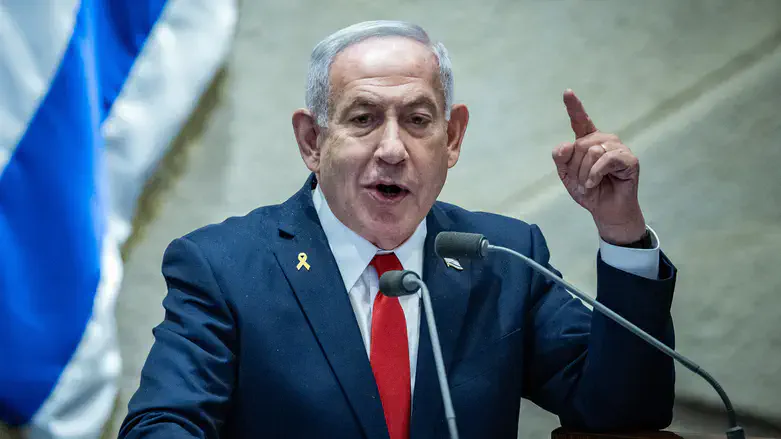
The Prime Minister's Office addressed the ongoing negotiations led by the Israeli delegation in Doha, outlining the frameworks currently under discussion for a potential hostage release agreement, and stated that Prime Minister Benjamin Netanyahu is prepared to end the war against the Hamas terrorist organization in return for the return of all of the hostages.
"Under the Prime Minister’s directive, the negotiation team is actively working in Doha to explore every opportunity for a deal—whether along the Witkoff outline or as part of an end-of-hostilities arrangement, which would include the release of all hostages, the exile of Hamas terrorists, and the disarmament of Gaza," the PMO's statement read.
Should an "end-of-hostilities" agreement be reached, the war would end.
Sources close to the Prime Minister also criticized remarks made by Brigadier General (res.) Oren Setter, a former member of the negotiating team, who claimed Israel could have secured a deal earlier. "His claims that an earlier agreement was possible are entirely baseless," the statement said. "As repeatedly confirmed by senior American officials, Hamas refused for months to engage in negotiations and was the sole obstacle to an agreement."
Netanyahu’s office further accused Setter of undermining government policy through selective leaks and briefings from the cabinet that damaged negotiations, endangered the hostages, and echoed Hamas's false propaganda. "He did this because he supports ending the war and leaving Hamas in power," the statement alleged.
Associates of the Prime Minister added, "Had the Prime Minister succumbed to pressure from Setetr and his allies, Hamas would have had time to rebuild, Nasrallah and the Hezbollah leadership would still be alive with tens of thousands of rockets, Assad would remain in power, and Iran would have suffered no significant damage."
In an interview with Kan Reshet Bet, Setter argued: "Military and diplomatic pressure is at its peak. This happens every few months, and it’s when Hamas becomes more flexible. I see an opportunity now and am concerned it will be missed—again settling for a partial deal instead of using this chance to bring back all the hostages. This is the optimal moment to reach the best possible agreement. For that, multiple elements must align, especially intense military and diplomatic pressure as we have now."
